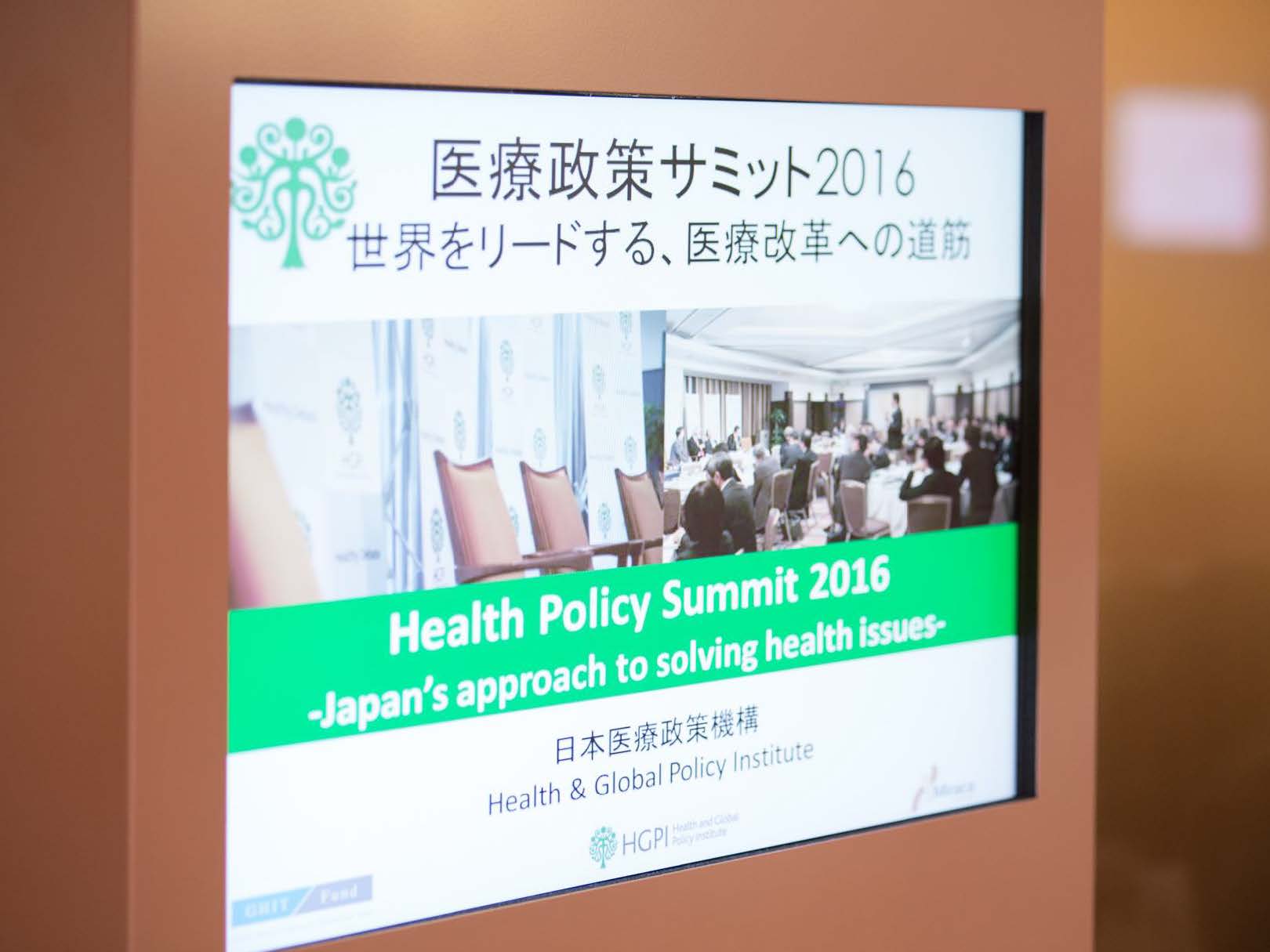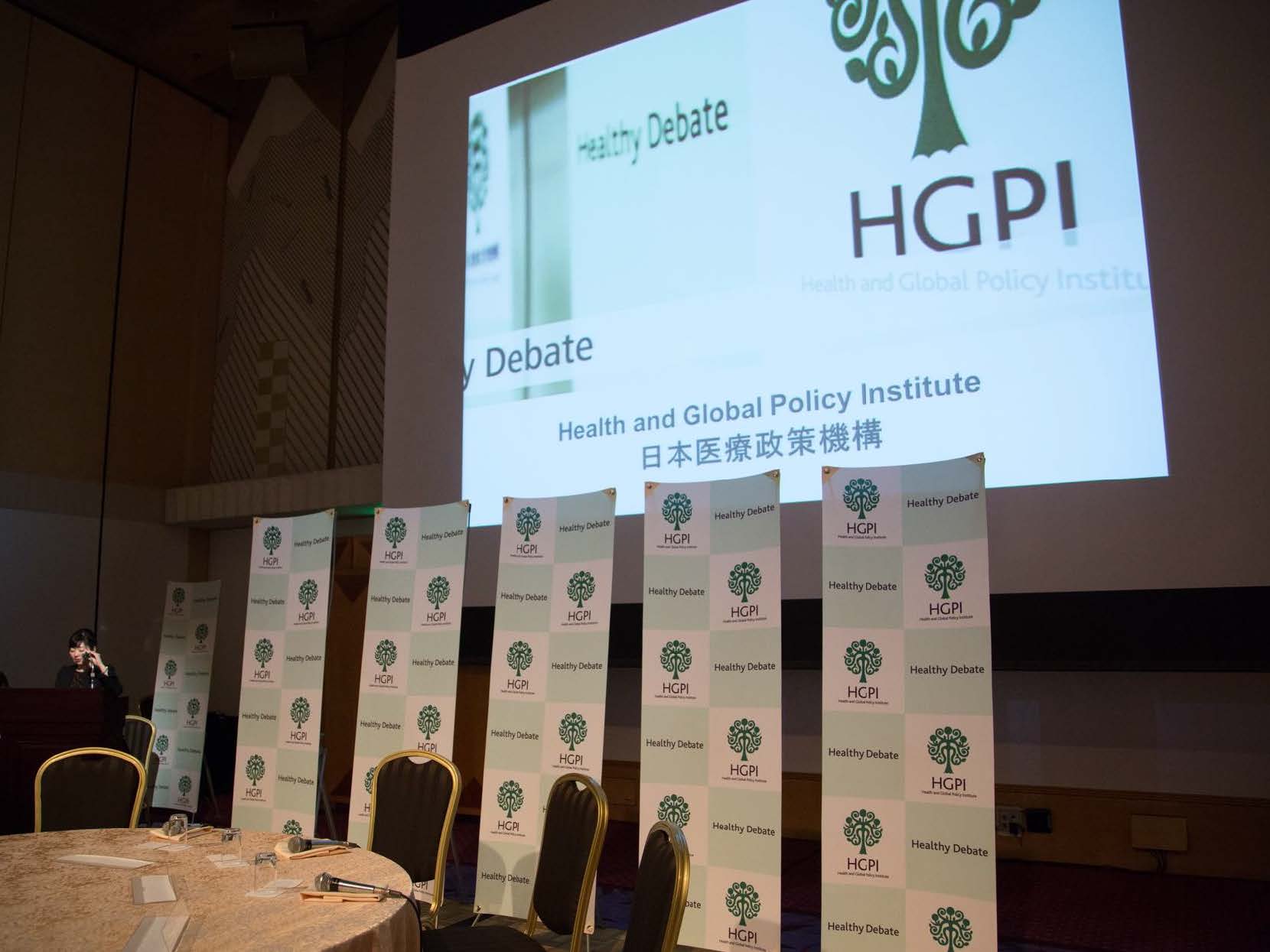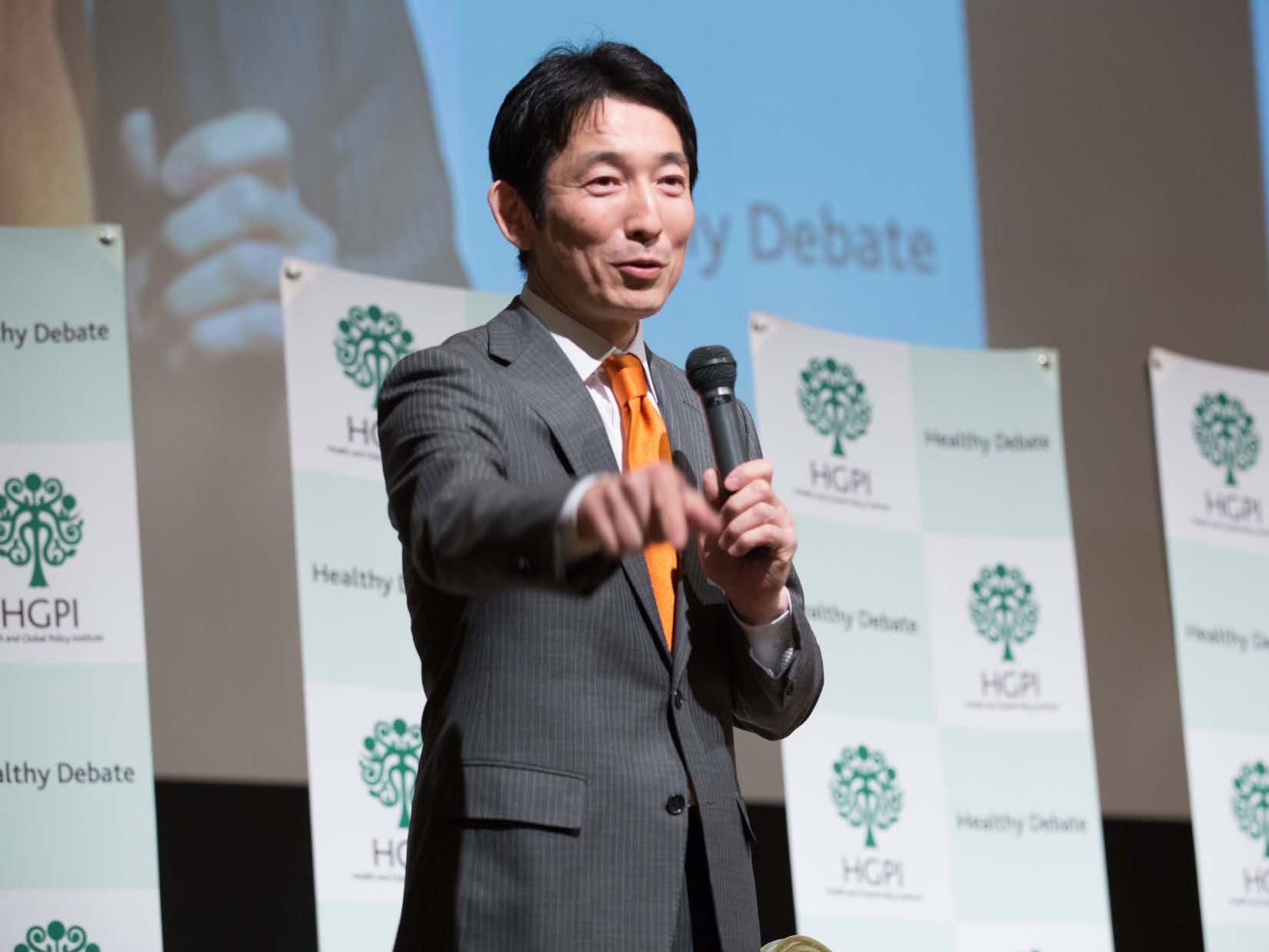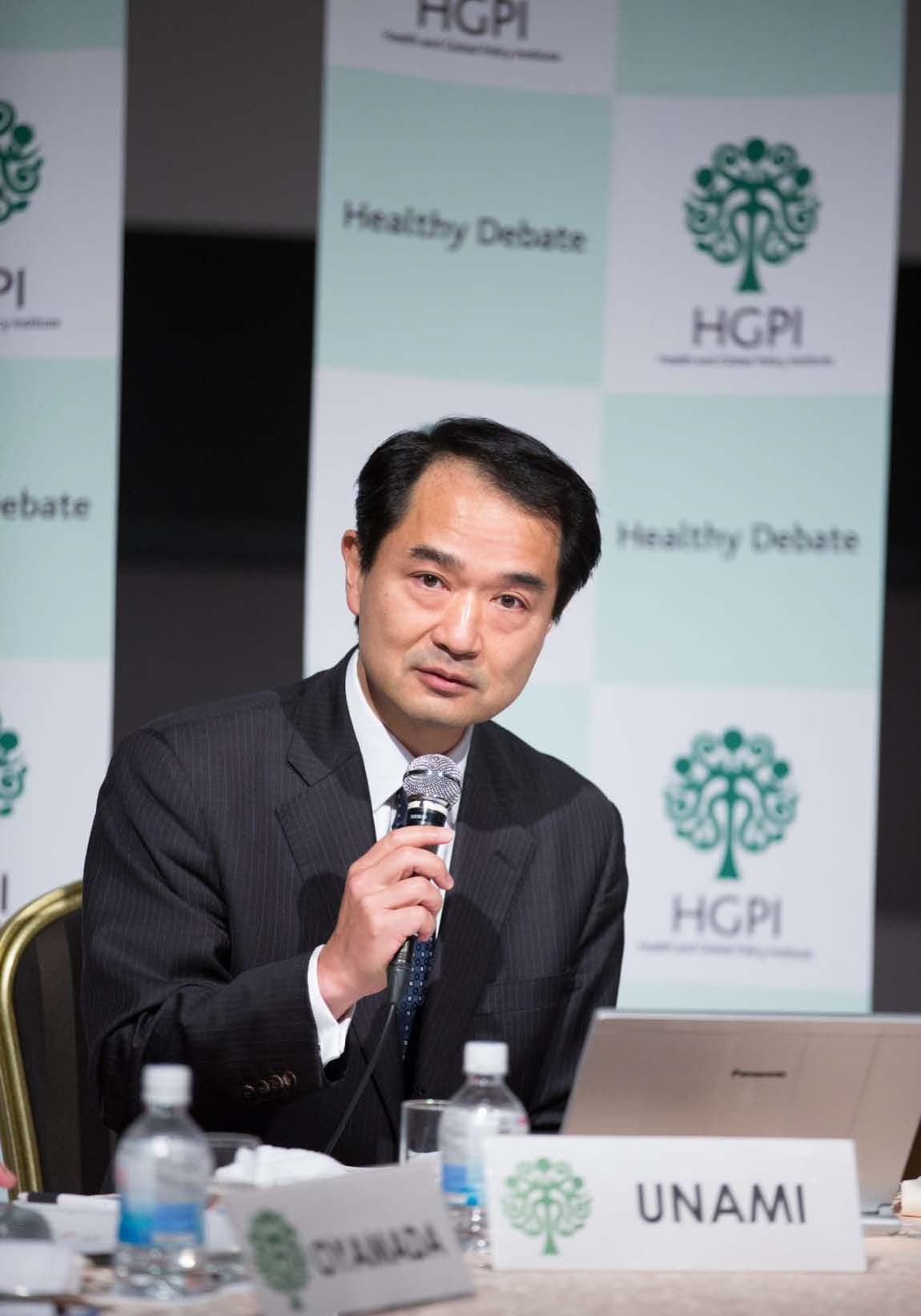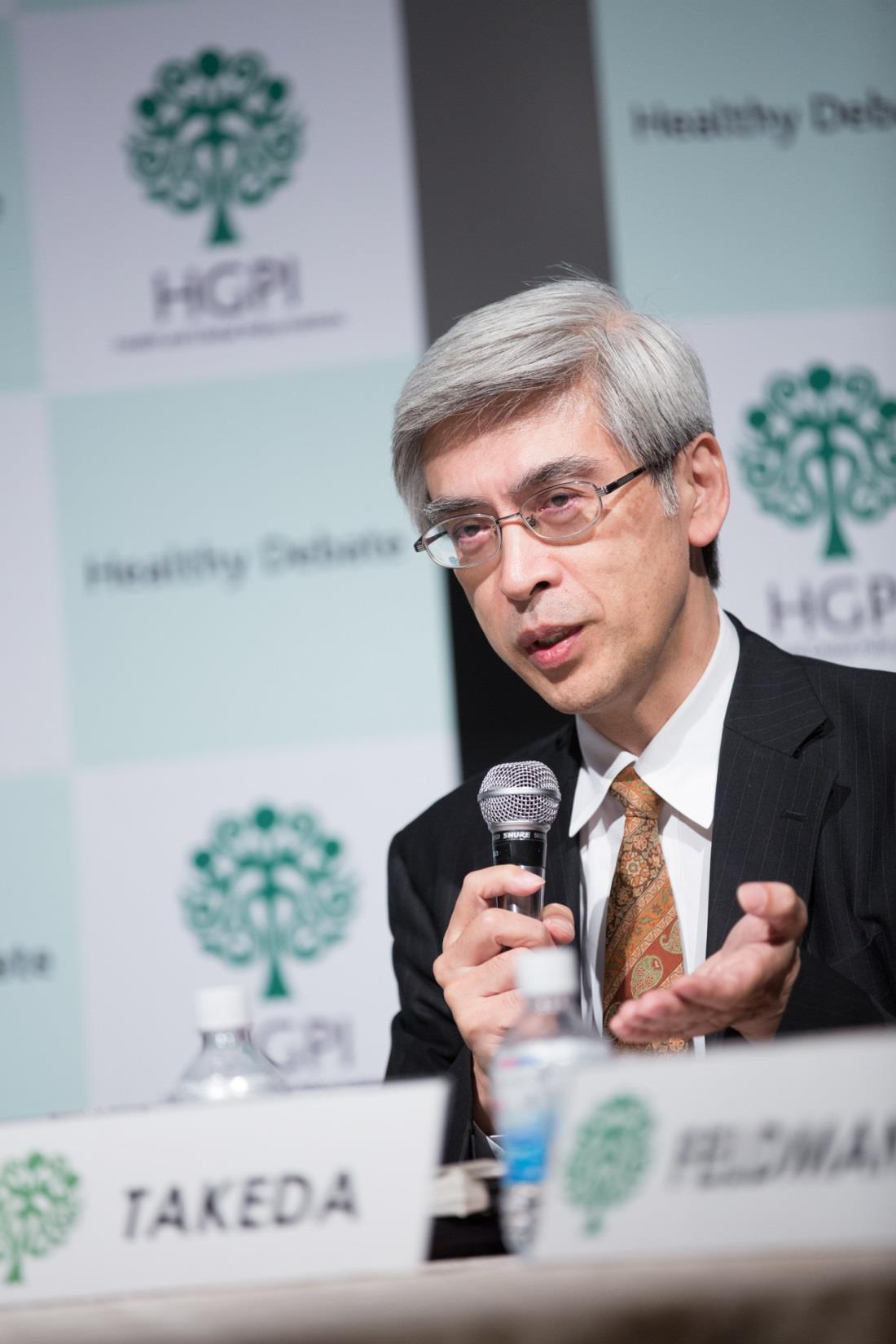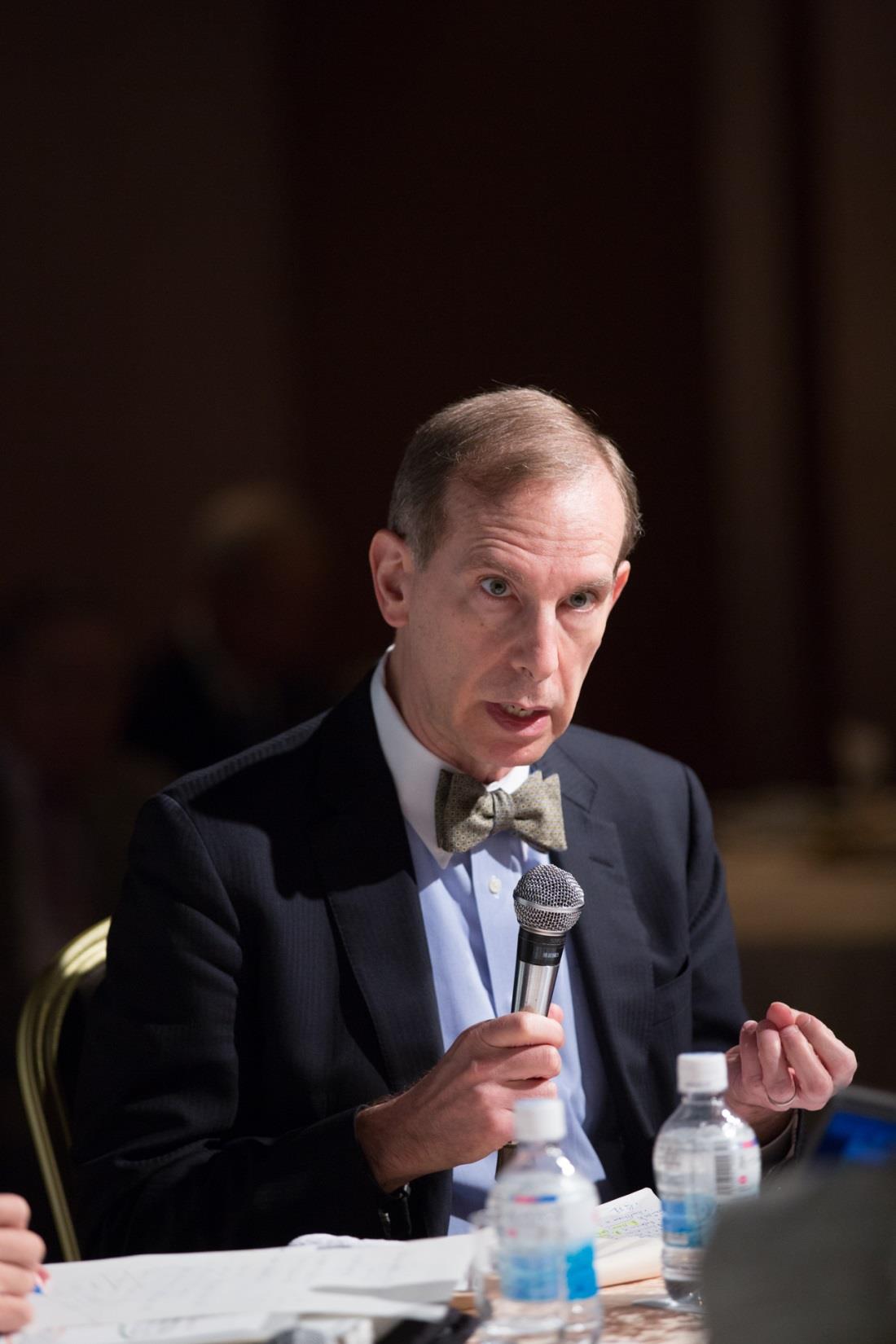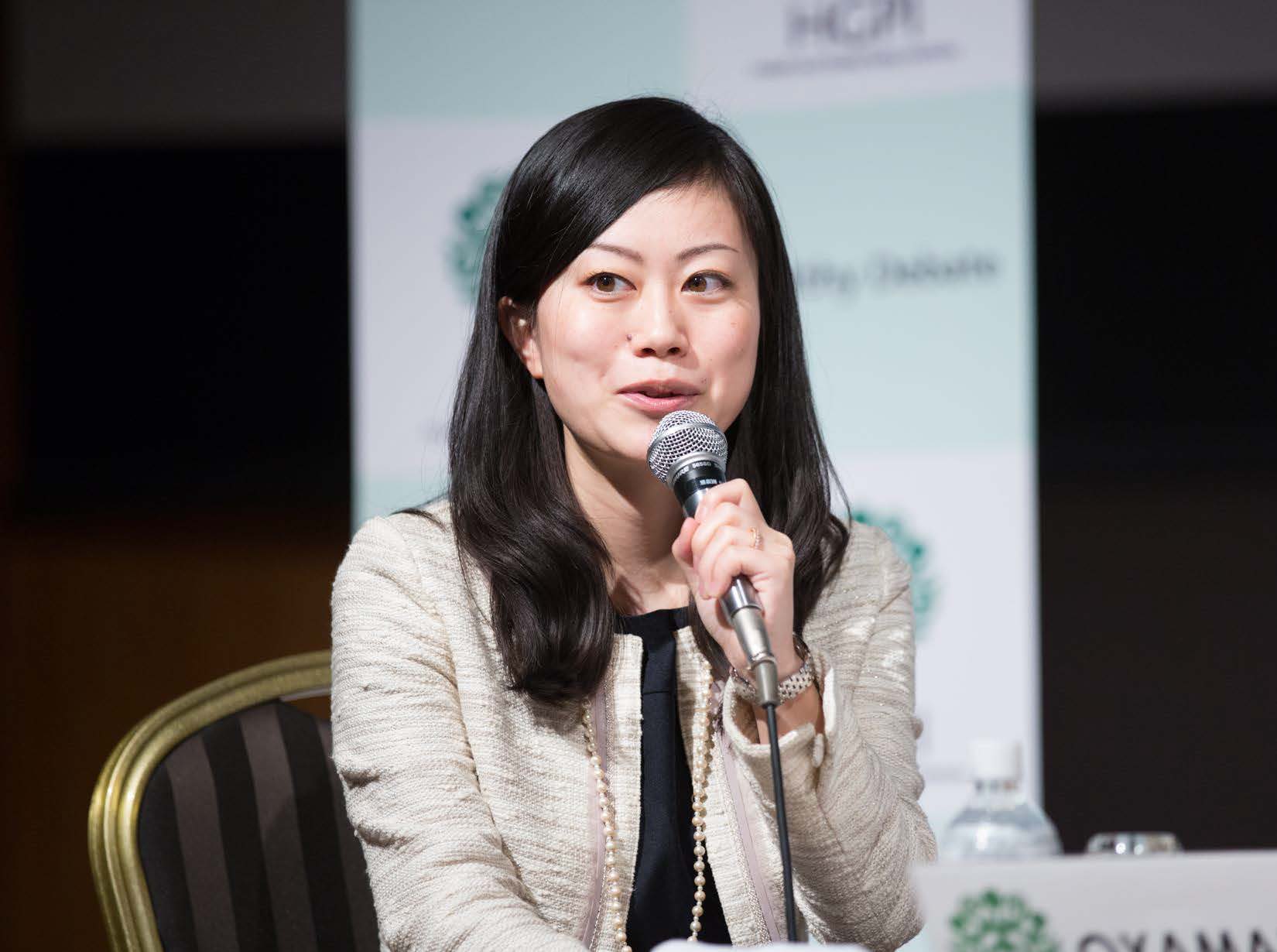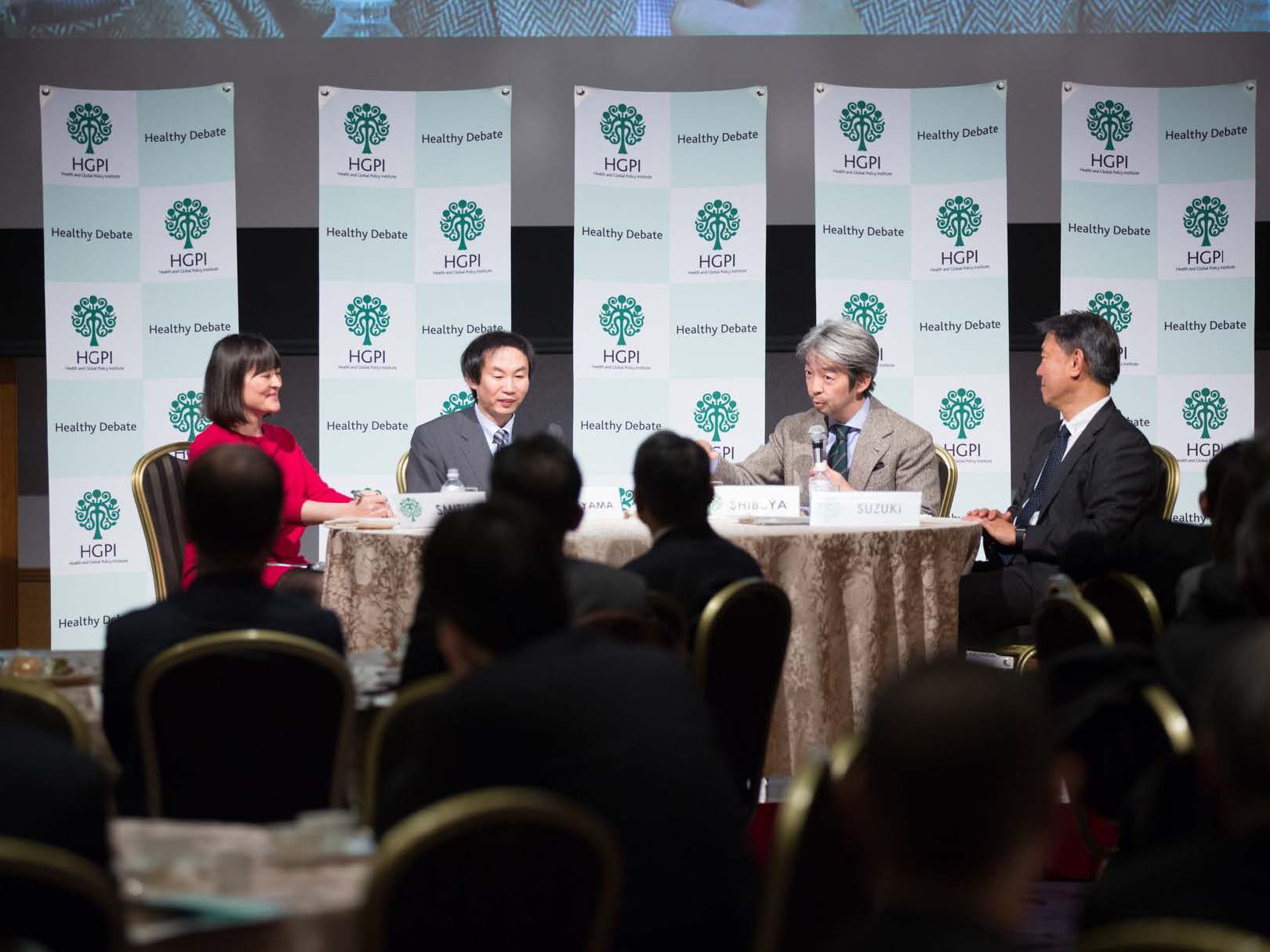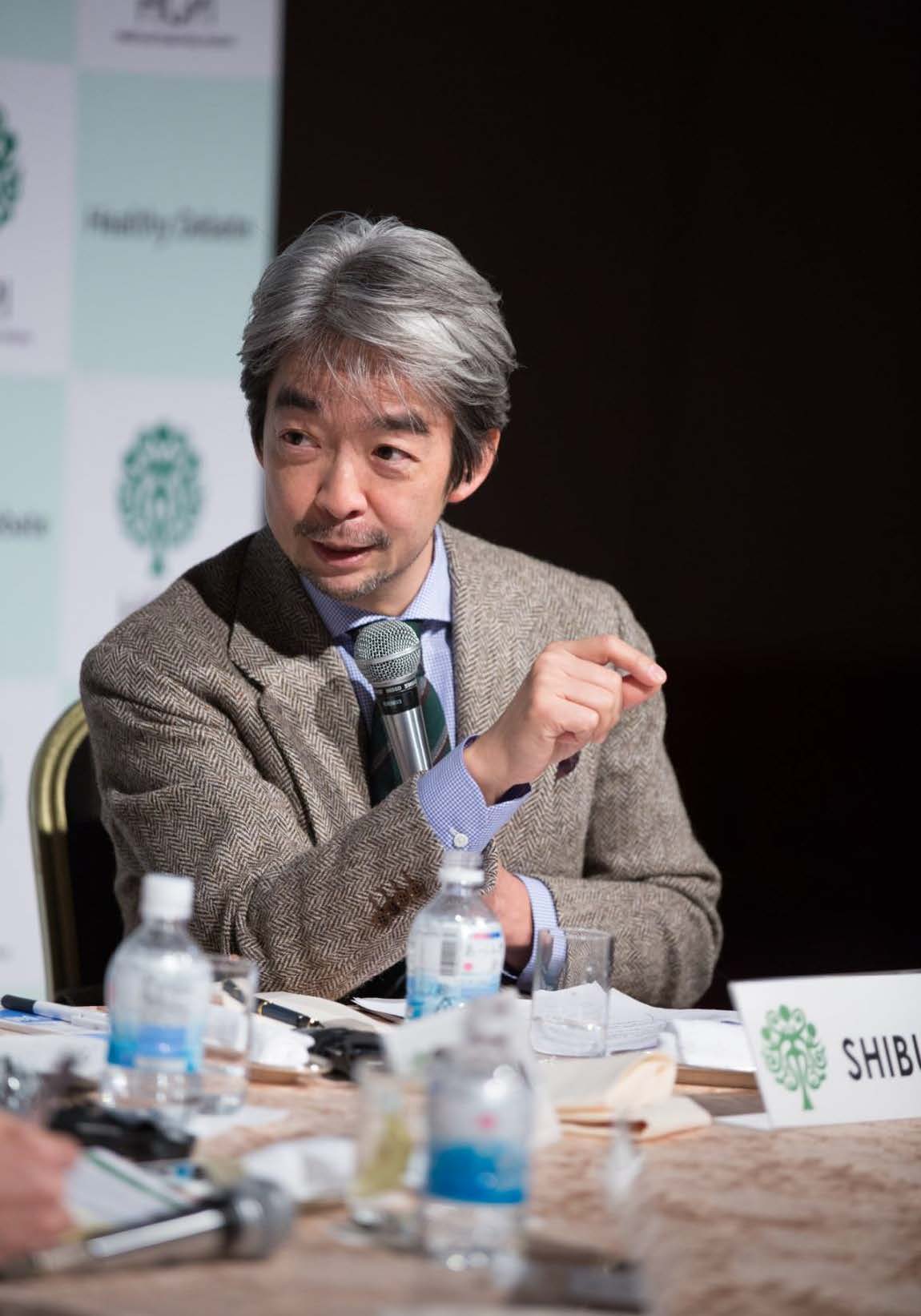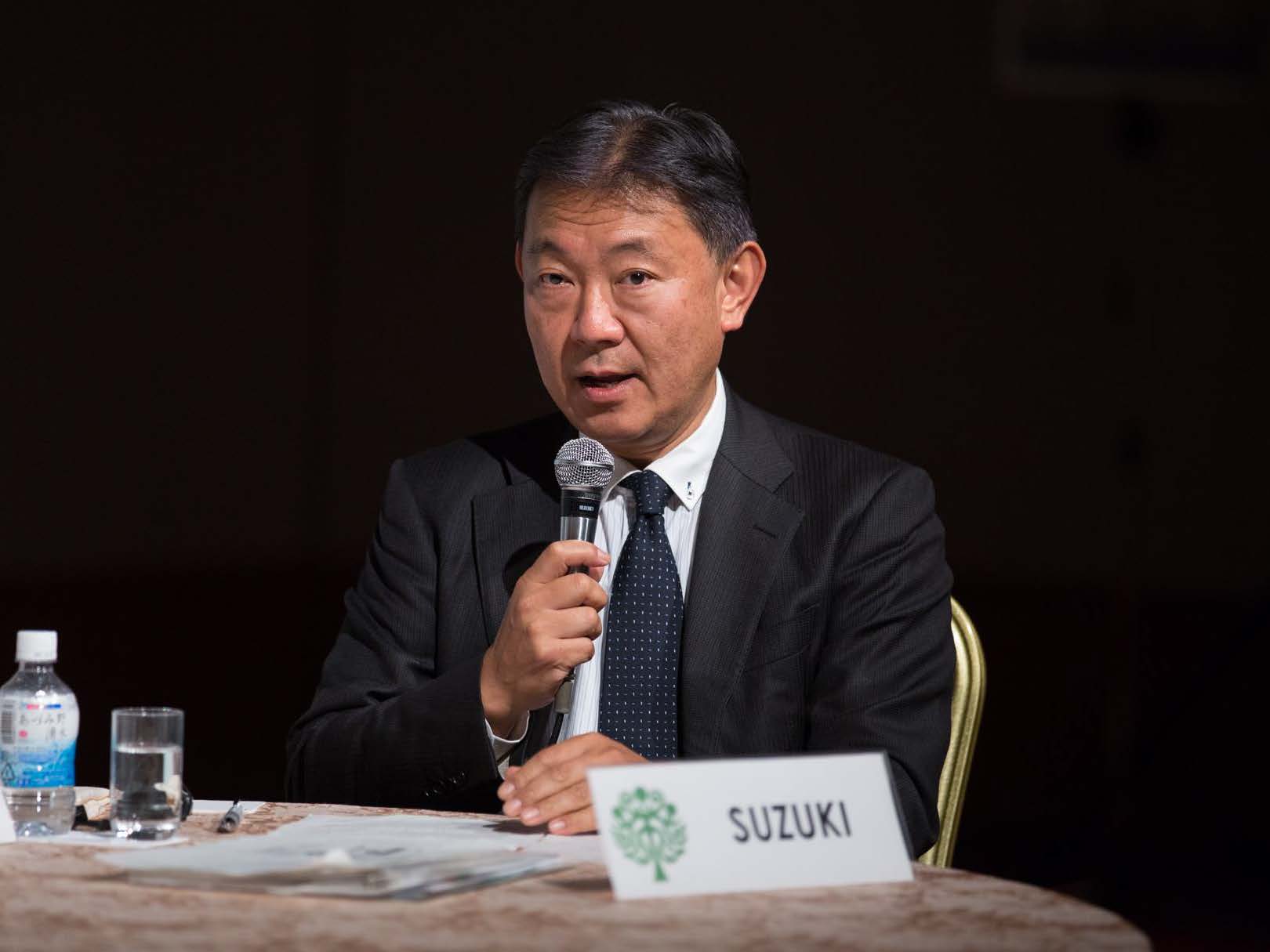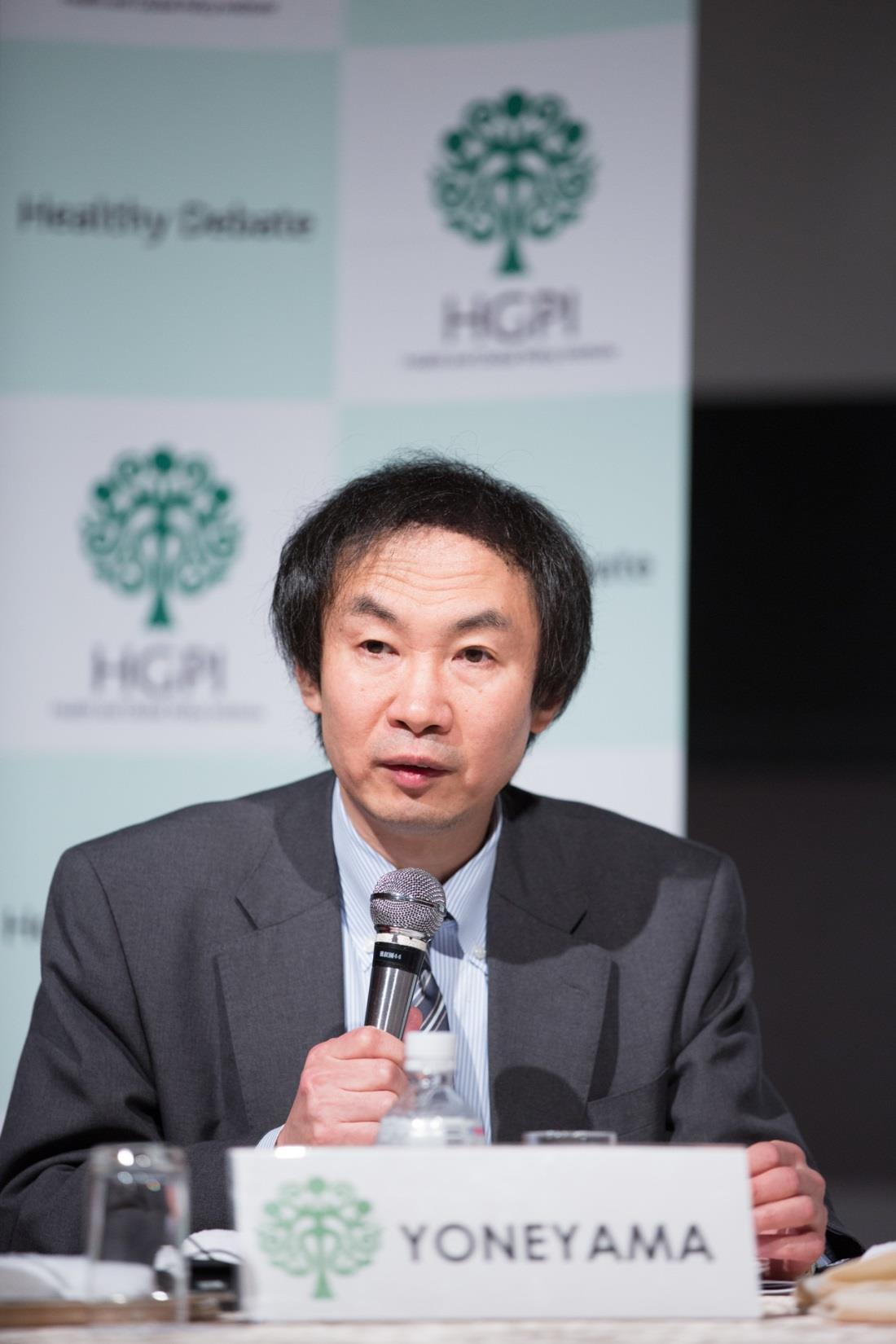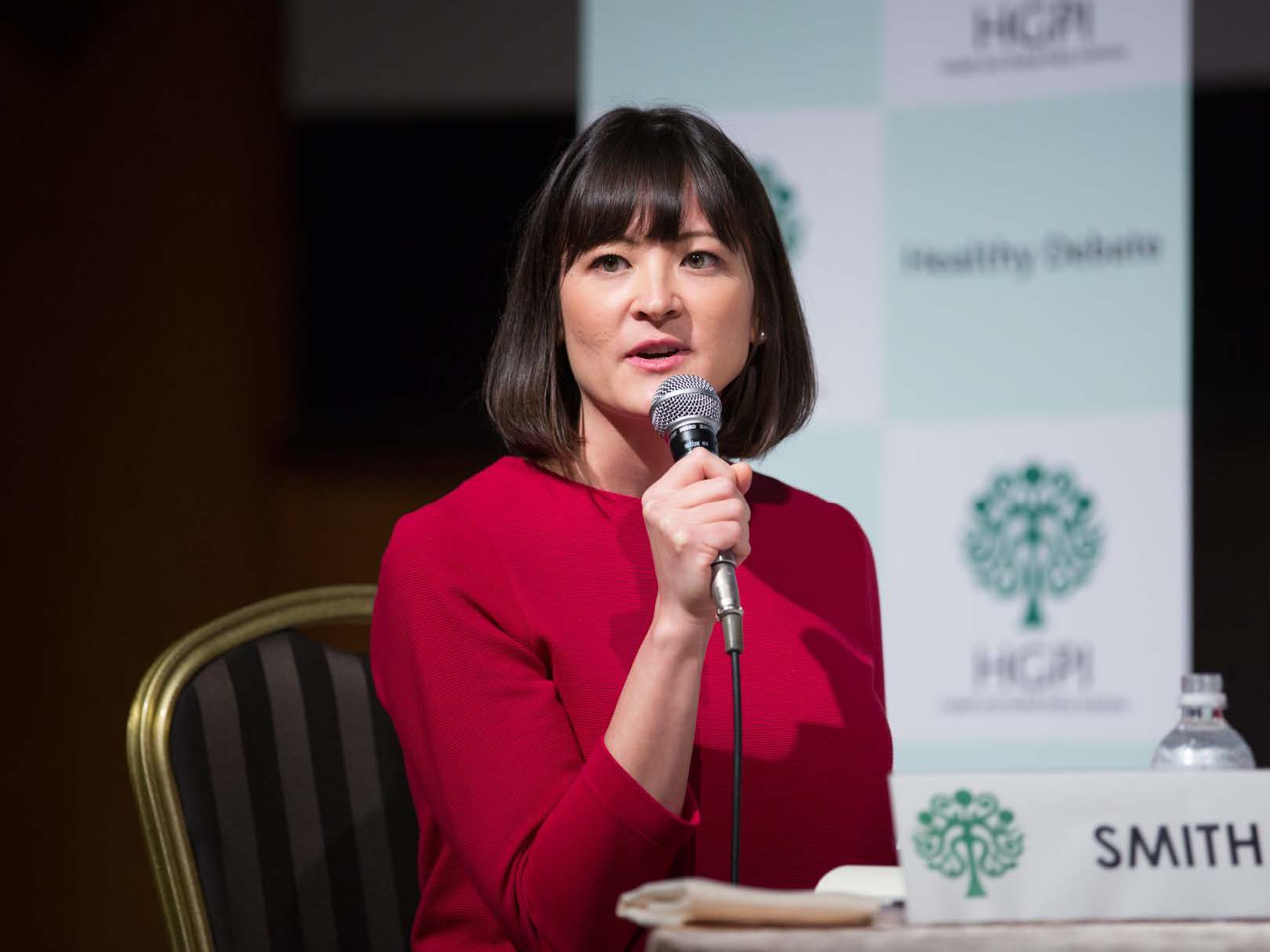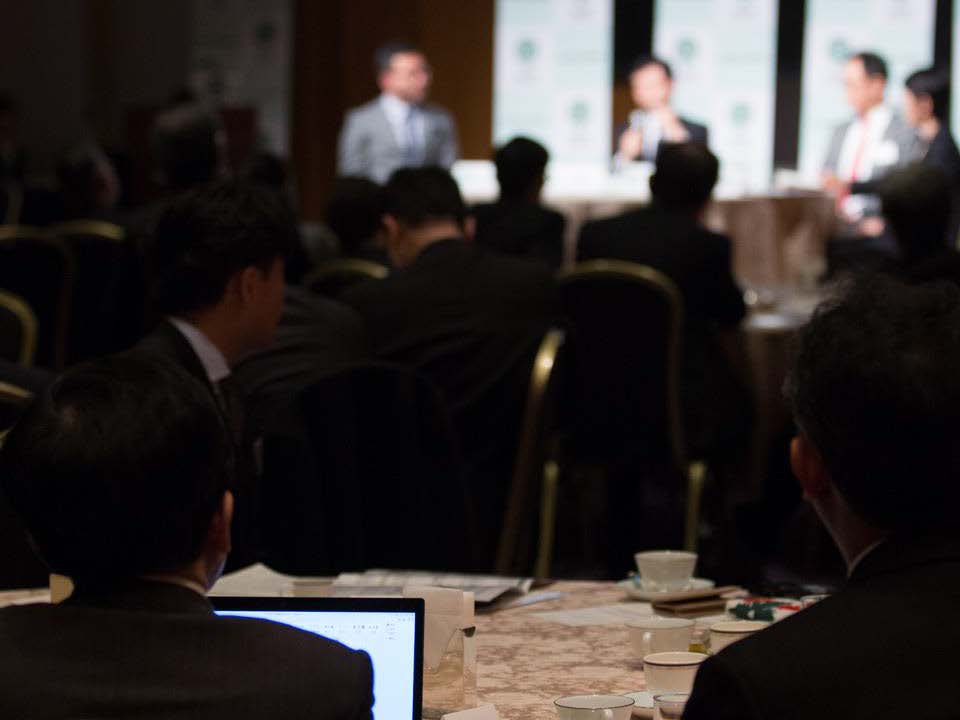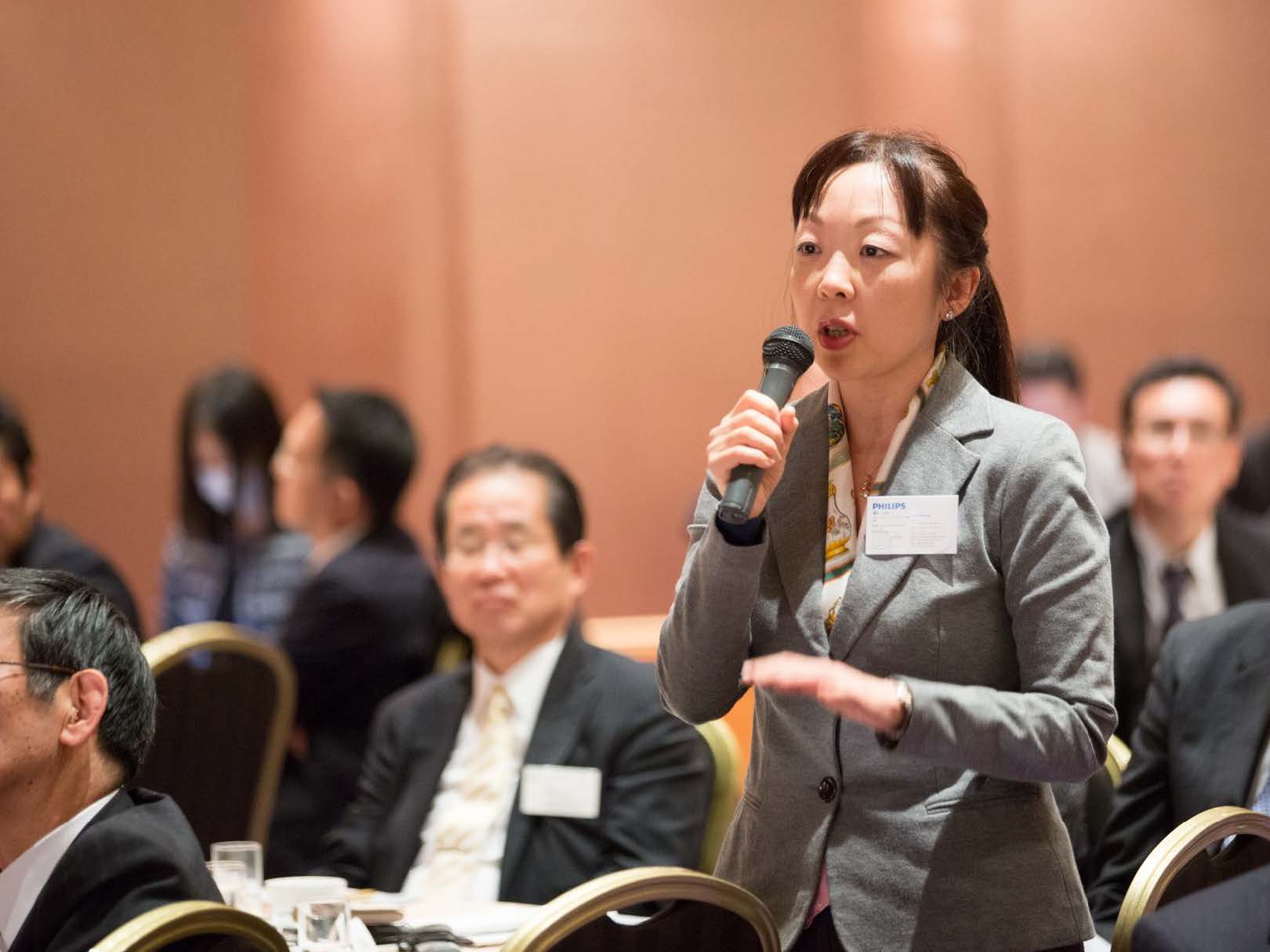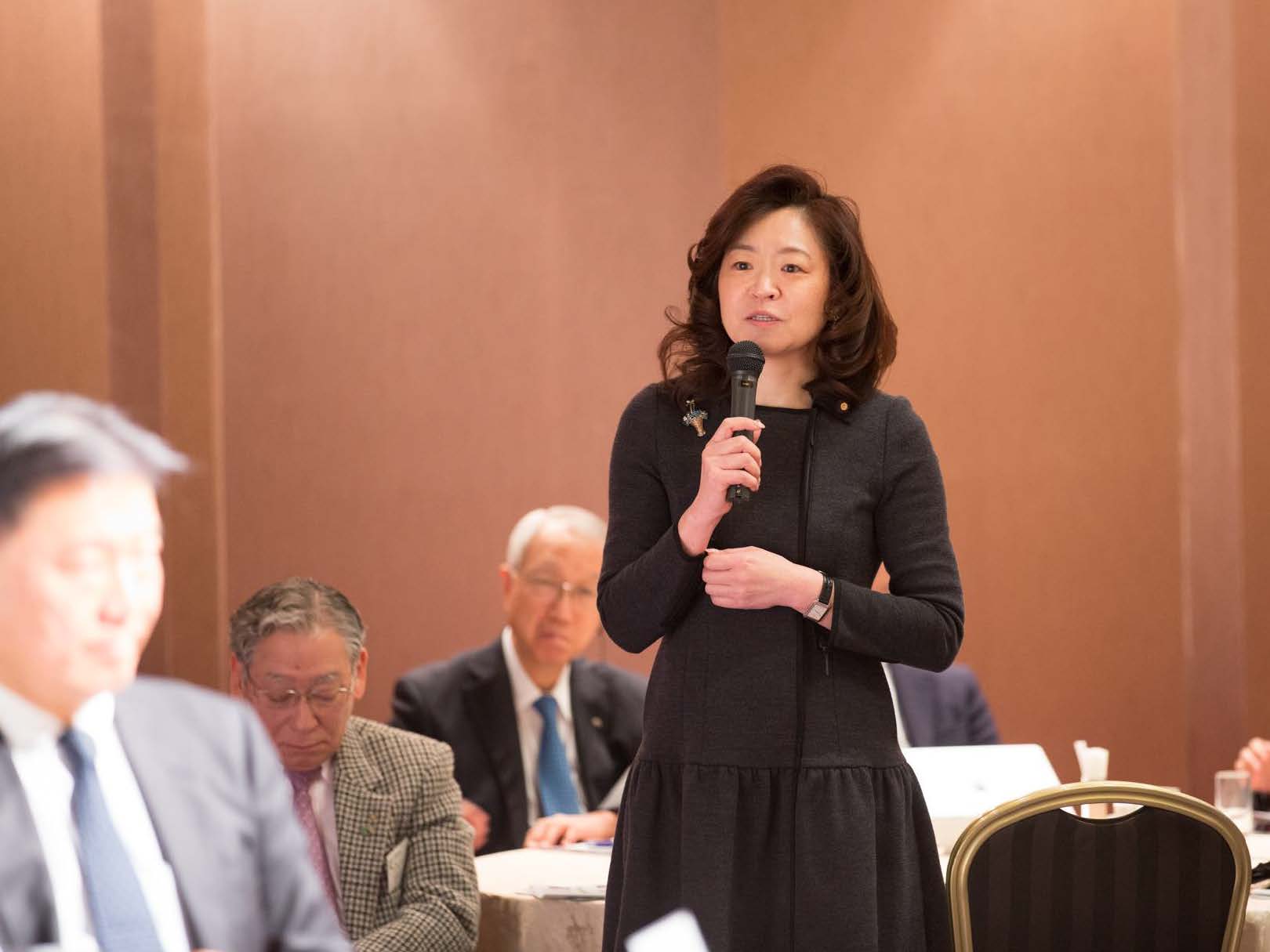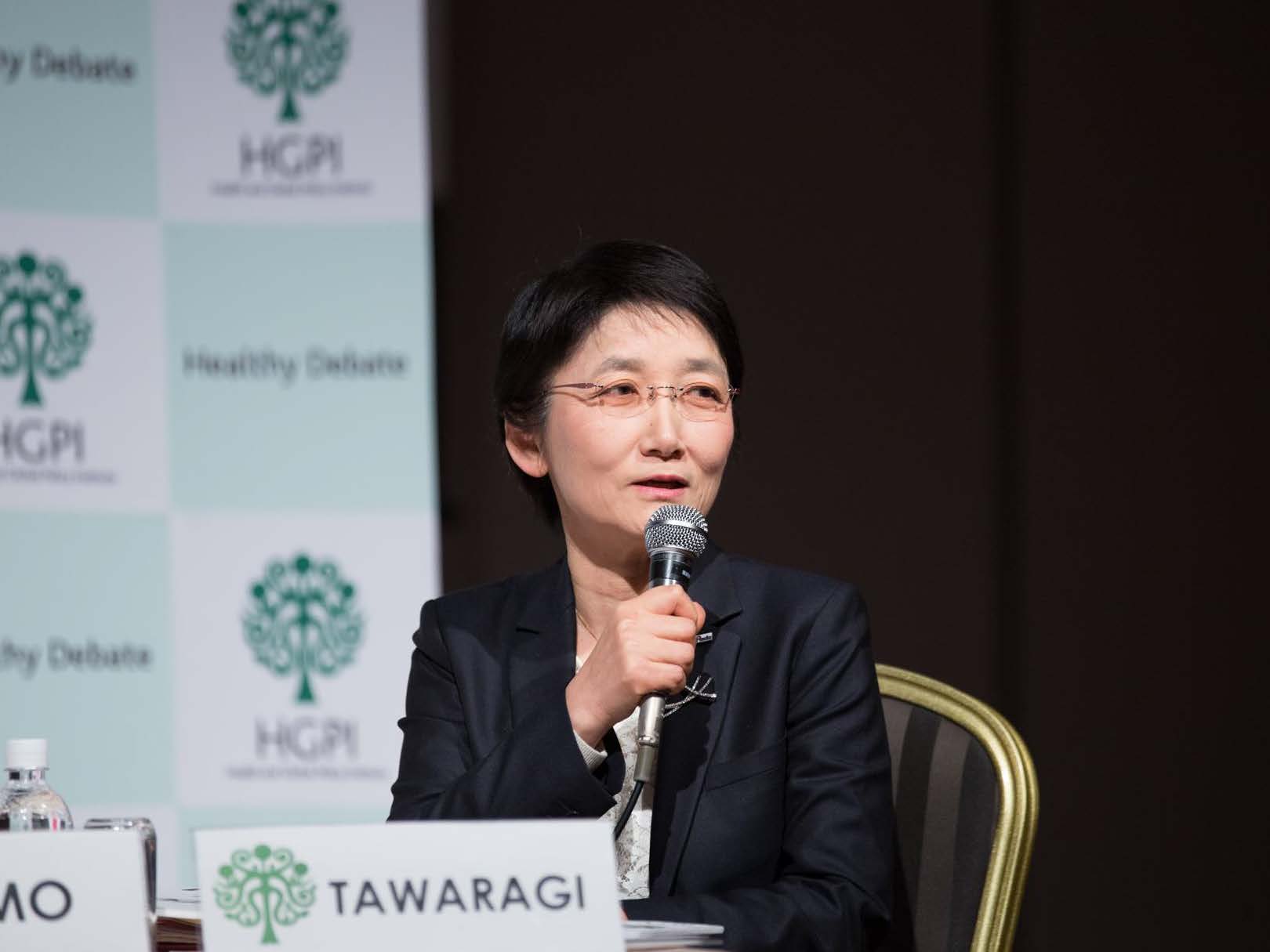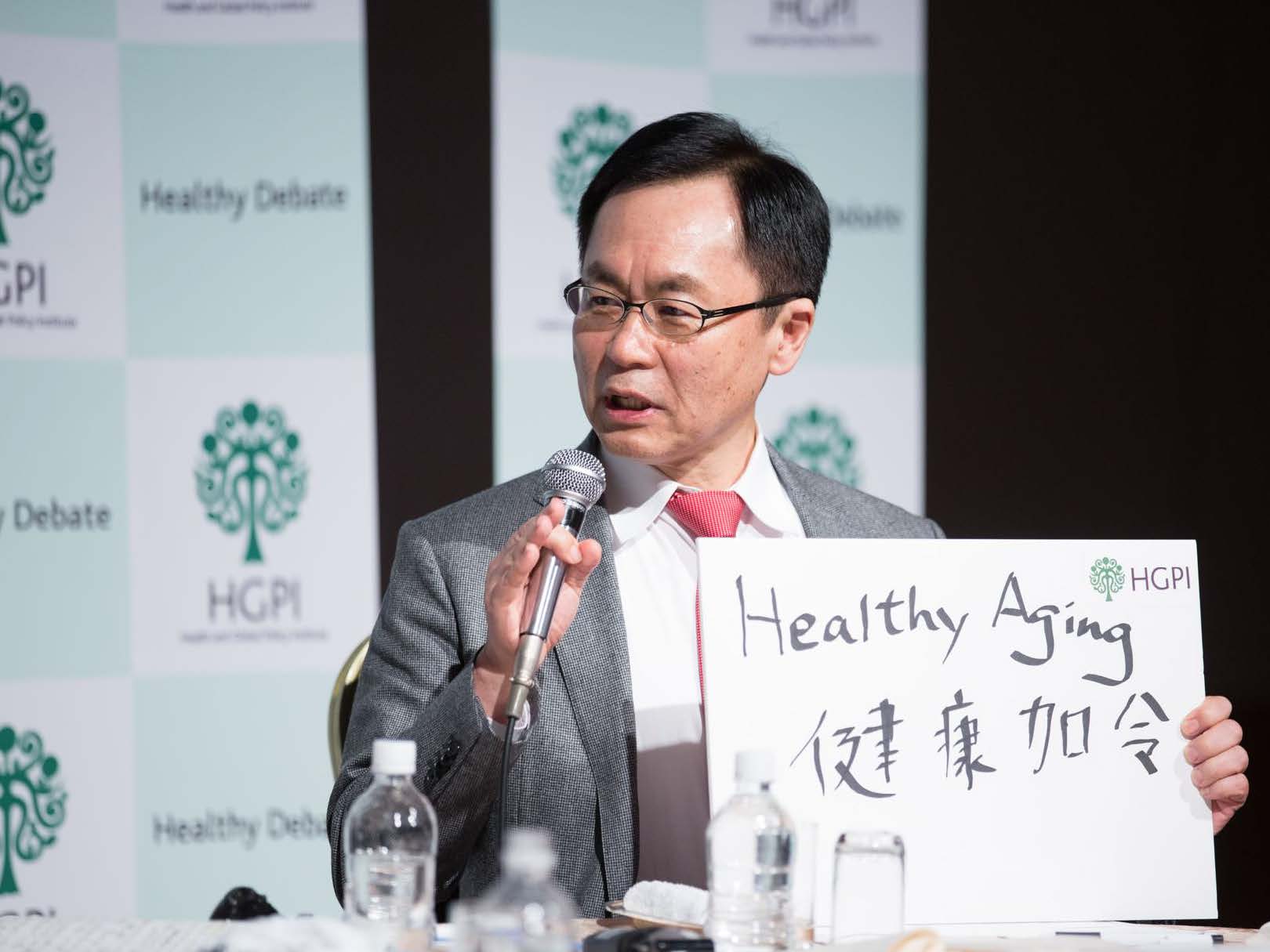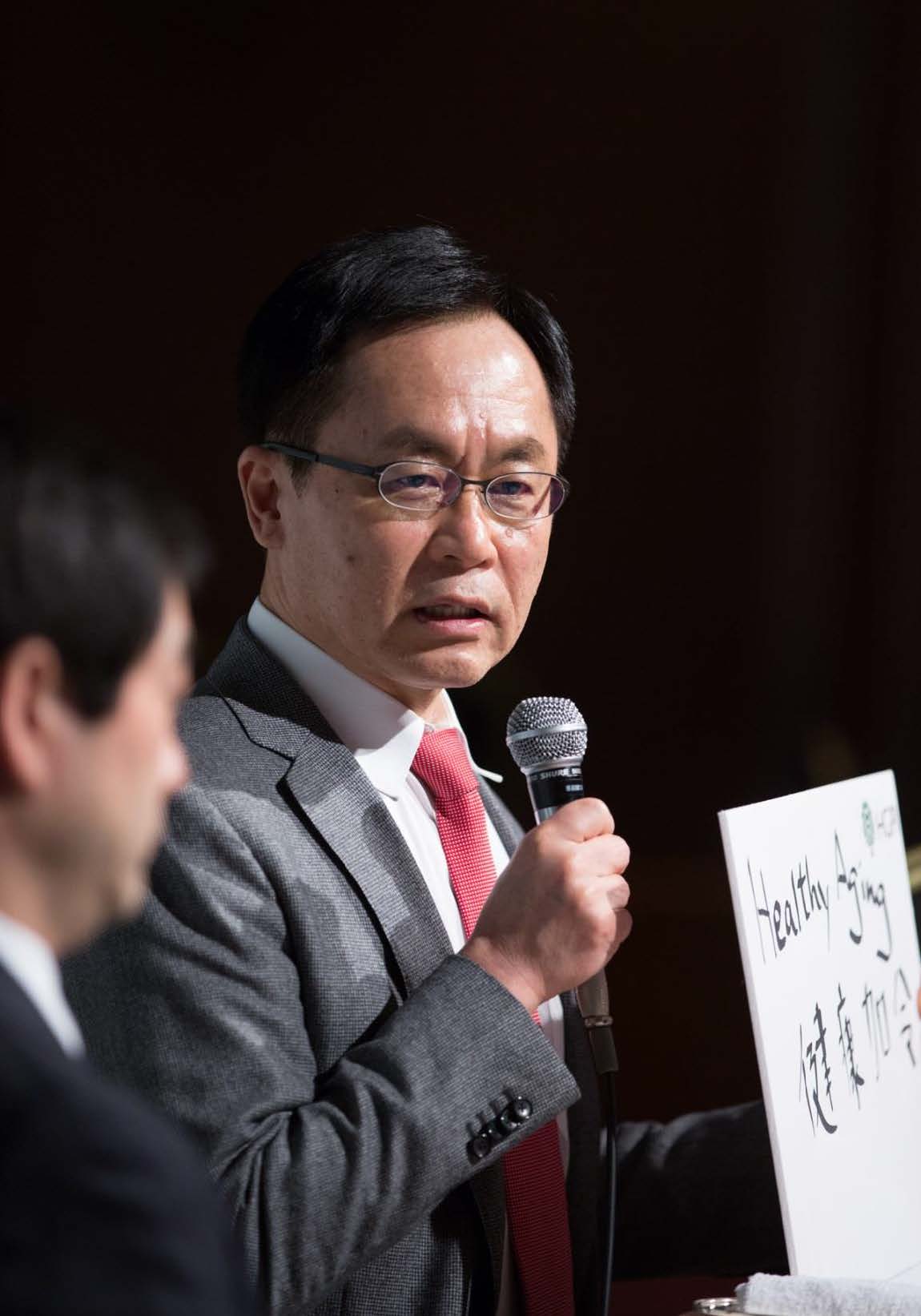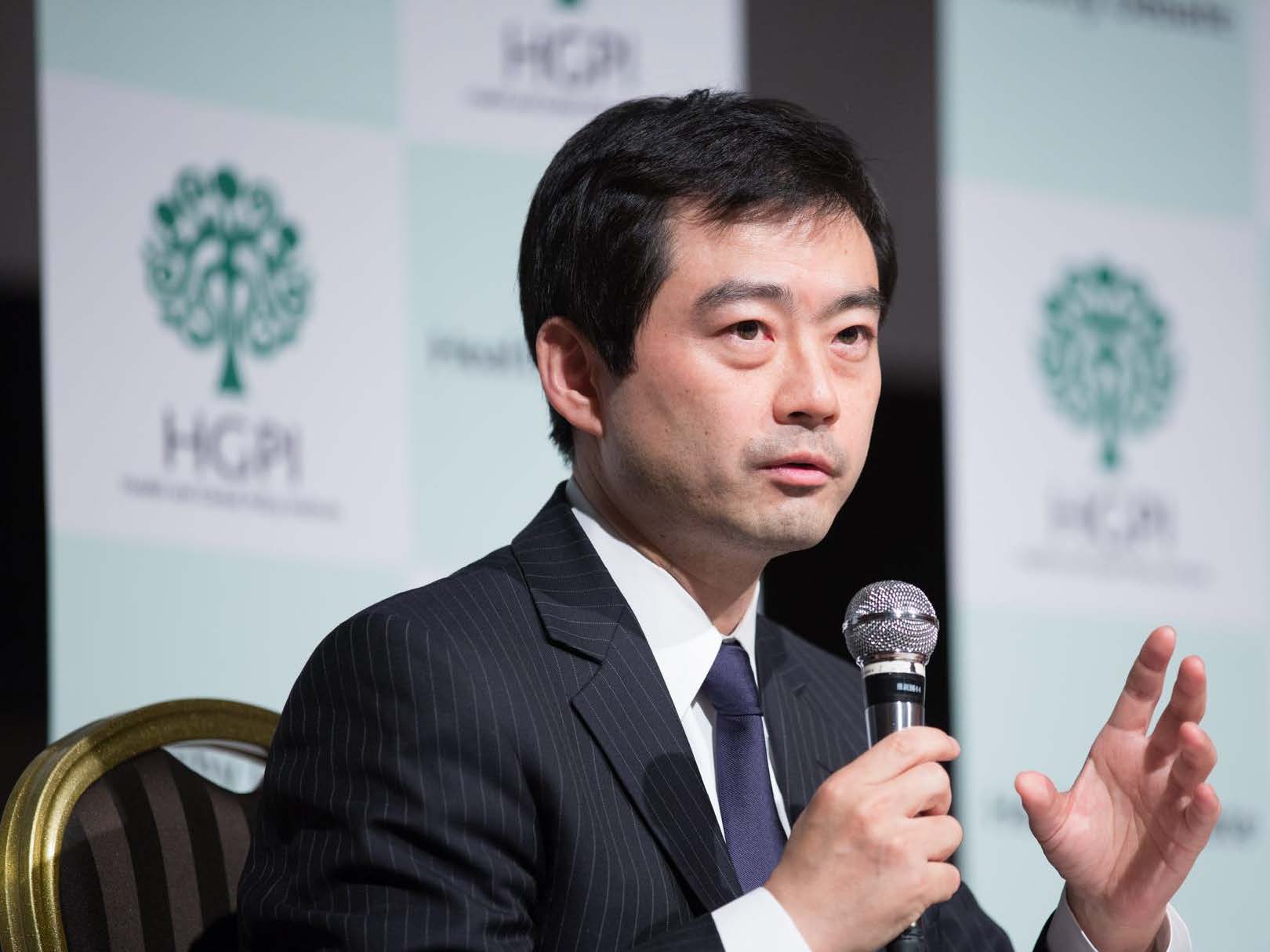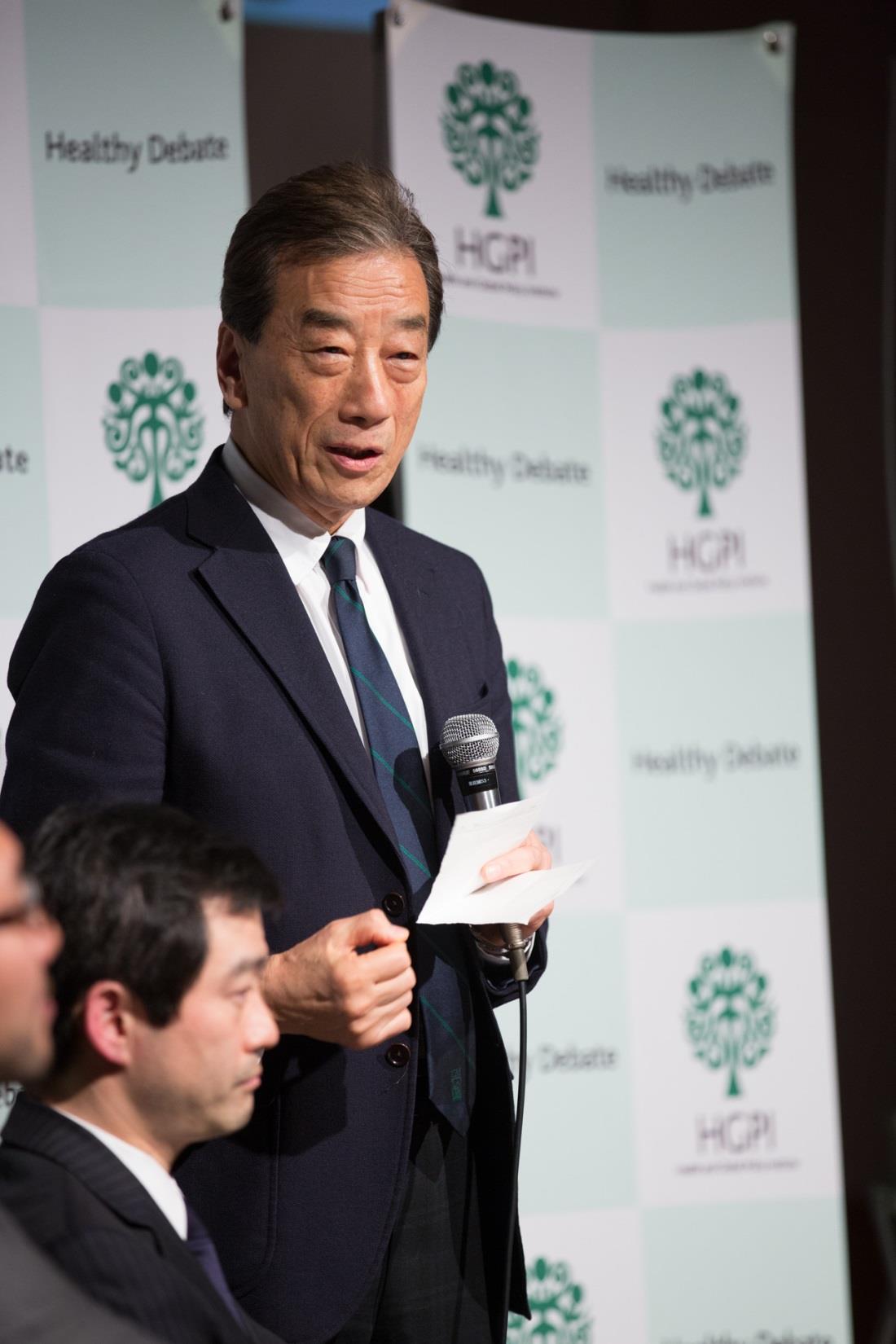The annual summit of the Health and Global Policy Institute (HGPI) took place on February 27th from midday at the Meguro Gajoen. Apart from conferences, this venue is used mostly for weddings and has opulent decor. On top of this, the day of the summit had nice, sunny weather.
HGPI was ranked as being in sixth place in the 2015 Global Go To Think Tank Index Report in the category of “global health policy think tanks” (p.92) and was ranked in fifteenth place in the category of “top domestic health policy think tanks” (p.90). As a small, independent think tank, this is quite an achievement. It is due to the tremendous efforts of the staff at HGPI.
I had just returned from London the day before but everyone who participated, the speakers on the three panels, as well as the excellent moderators, made for a lively and interesting afternoon.
The first panel, “Sustainability in Health Care” had the following panelists: Hirotaka Unami, the Senior Director for Social Security Budget, Ministry of Finance; Toshihiko Takeda, Director-General for Policy Planning and Evaluation, Social Security, Ministry of Health, Labour and Welfare; and Robert Alan Feldman, the Managing Director, Chief Economist, Morgan Stanley MUFG Securities Co., Ltd. The moderator was the Mariko Oyamada, the Manager, Health and Global Policy Institute.
This panel focused on the issue of whether the public healthcare system in Japan, which the country takes great pride in, is sustainable in the face of a tight budget and an aging society. It was a very frank and open discussion and a nice opening for the whole summit.
The second panel, “Global Health- G7 Summit and Beyond,” had the following panelists: Kenji Shibuya, Professor, at the University of Tokyo who is internationally minded; Yasuhiro Suzuki, Assistant Minister at the Ministry of Health, Labour and Welfare who is also internationally minded; and Yoshiharu Yoneyama of JICA. The moderator was Anne Smith of HGPI.
We discussed a wide range of topics, including Japan’s contributions to global health so far; the agenda of the G7 Summit that will be held in May; and the potential for developments of partnerships which extend beyond Japan, in particular PPPs (public-private-partnerships) such as GHIT.
Japan’s contributions to the G7/G8 Summits in the area of global heath has been remarkable and the next challenge is how to further develop them to the next stage. The issues of poverty and health and diseases are some of the underlying causes of the instability that we feel in this world.
The third panel, “The Future of Health Care” had the following panelists, who come from different backgrounds: Seigo Izumo, who recently moved to Takeda Pharmaceutical Company; Tomiko Tawaragi, the Chief Safety Officer at the Pharmaceuticals and Medical Devices Agency (PMDA); and Shinsuke Muto who is very energetic. The panel was moderated by Ryoji Noritake of HGPI.
Both Dr. Izumo and Dr. Muto have unique careers amongst Japanese medical doctors- they are movers and shakers on a global scale and have interesting experiences to share, so their views have a major impact. Mr. Tawagi has built his career at the Ministry of Health, Labour and Welfare and had a clear message.
We received many comments from people with global perspectives and it seemed that there was a major push for Japan to end its “isolation” and become a more open country.
I felt that this was a very fruitful day where we had a meaningful discussion, including with our members and the audience.
I would like to express my gratitude towards all of the people who continue to support HGPI.
Furthermore, I would like to thank the team members of HGPI, the OB/OG, as well as the interns and students for their hard work.
The report on this summit is summarized here.
